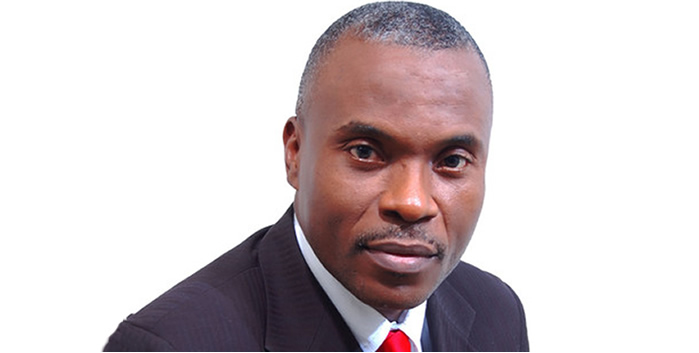Music
Why Are Nigerian Musicians Dying Young?

Recent trends in Nigeria’s entertainment industry reveal a troubling pattern: many musicians and actors face premature deaths. The recent resurgence of interest in the 1980s folk musician Gentleman Mike Ejeagha, spurred by a viral dance challenge, highlighted that he is still alive at 94. This longevity, however, contrasts sharply with the shorter lifespans of many of his peers.
In the South-East, Ejeagha stands out as a rare example of enduring success, with only a few contemporaries like Chief Osita Osadebe and Prince Morocco Maduka reaching their 70s. Osadebe died at 71, Maduka at 73, and others like Oliver de Coque and Sir Warrior passed away at 61 and 52, respectively. Musicians such as Celestine Ukwu and Patty Obasi died at 37 and 61.
In the South-West, Fatai Rolling Dollar achieved 85 years, making him one of the oldest musicians in the region. In contrast, Fela Anikulapo-Kuti passed away at 58, and while Ebenezer Obey and Sunny Ade are still alive at 82 and 77, respectively, the trend of early deaths remains noticeable.
The South-South region also reflects this issue. Sir Victor Uwaifo reached 80, while others like Cardinal Rex Lawson and Majek Fashek died at 32 and 57. Christy Essien-Igbokwe and Ras Kimono passed away at 50 and 60.
The situation extends beyond musicians to actors and actresses in Nollywood. Few reach their 70s, with notable exceptions like Bukky Ajayi, who lived to 82. Many others, including Sam-Loco Efe, Justus Esiri, and Moji Olaiya, died well before reaching 70.
This trend raises questions about the factors contributing to the early demise of Nigerian entertainers. Is it related to the pressures of their profession, health issues, or other socio-economic factors? Understanding these factors is crucial for improving the longevity and well-being of those in the entertainment industry.
Music
“Mr Eazi Unveils ‘The Evil Genius’ Album, Showcasing African Art and Music Fusion”

By Milcah Tanimu
Mr Eazi’s highly-anticipated album, “The Evil Genius,” is a musical journey recorded across diverse locations, including Benin, Rwanda, Ghana, Nigeria, London, Los Angeles, and New York City. The album delves into deeply personal themes of love, betrayal, loneliness, and family, expressed through three distinct acts.
This groundbreaking project features an array of guest artists, including Angelique Kidjo (Benin), Tekno (Nigeria), Efya (Ghana), Whoisakin (Nigeria), Joeboy (Nigeria), and the renowned Soweto Gospel Choir (South Africa), who are three-time Grammy winners.
The album boasts a roster of talented producers, such as Kel-P (Nigeria), Knucks (U.K.), Michael Brun (Haiti), Andre Vibez (Nigeria), Yung Willis (Nigeria), Nonso Amadi (Nigeria/Canada), KillBeatz (Ghana), M.O.G Beatz (Ghana), E Kelly (Nigeria), Type A (Nigeria), Stikmatik (U.K.), Phantom (Nigeria), Beat Butcha (U.K.), Venna (U.K.), KDream (Nigeria), and Mr Eazi himself.
In a unique fusion of African music and art, Mr Eazi collaborated with visual artists from across the continent, commissioning them to create distinct physical art pieces representing each of the album’s 16 tracks. During his travels across Africa for the album, Mr Eazi formed connections with talented visual artists, aiming to bridge the gap between Africa’s thriving pop music scene and its fine art creators. He personally selected 13 artists from eight African countries, adding art curator and patron to his extensive list of pursuits.
As part of the album’s rollout, Mr Eazi has invited the public to experience the music alongside these captivating art pieces at multi-sensory exhibition listening events. The first two exhibitions took place in Accra, Ghana, at Gallery 1957, and during the 1-54 Contemporary African Art Fair in the U.K. at Somerset House in London from October 12 to October 15.
For the album’s cover art, Mr Eazi collaborated with the celebrated Nigerian stylist, designer, and photographer Daniel Obasi, renowned for his work with global icons like Beyoncé and Louis Vuitton. “The Evil Genius” promises to be an extraordinary exploration of African music and art, a testament to Mr Eazi’s commitment to innovation and creativity.
Music
R&B Experiences Commercial Resurgence in Africa, Spotify Reports

By Milcah Tanimu
R&B music in Africa is witnessing a commercial resurgence, showcasing the adaptability and creativity of African musicians. African artists are infusing traditional R&B themes of love and relationships with their unique cultural and musical influences, redefining the genre.
Spotify, recognizing the growing popularity of R&B in Africa, has partnered with COLORSxSTUDIOS to organize a multi-day R&B writing camp in Nairobi, Kenya. This writing camp, held in the first week of October, brings together artists, songwriters, and producers from Africa and beyond, with Spotify’s flagship R&B playlist, Tantalizers, serving as the platform.
The demand for quality R&B in Africa is evident, with countries like South Africa, Nigeria, Kenya, Ghana, Zambia, and Uganda registering high R&B listenership on Spotify. Even in francophone and lusophone markets like Côte d’Ivoire and Angola, R&B’s presence is growing across Sub-Saharan Africa.
Kenya appears to be at the forefront of this resurgence, with Spotify data from the last 90 days showing that Tantalizers playlist receives the most streams from the country, and R&B ranks among the top five genres in Kenya. Across Sub-Saharan Africa, artists like The Weeknd, Chris Brown, SZA, Rihanna, and Beyoncé are among the most streamed R&B artists on Spotify. Additionally, local artists like Xenia Manasseh (Kenya), Baaba J (Ghana), Lloyiso (South Africa), and Bloody Civillian (Nigeria) are resonating with listeners.
Collaborations between international icons and African artists are becoming more frequent, further propelling R&B’s growth. African musicians are also creating global hits among themselves, demonstrating the continent’s musical prowess. Songs like ‘WAIT FOR U’ by Drake, Future, and Tems, ‘Monalisa’ by Chris Brown, Lojay, and Sarz, and ‘Call Me Everyday’ by Chris Brown featuring Wizkid exemplify this trend.
African musicians are blending soulful vocals with traditional African rhythms, Afrobeat elements, and contemporary production techniques, creating a sound that appeals to both local and international audiences. Most R&B streams in Sub-Saharan Africa come from Gen Z listeners aged 18-24, followed by those aged 25-29.
R&B in Africa is thriving, bridging cultural and generational gaps, and demonstrating the universal power of music, regardless of location or age.
Music
Arcade High – Outrun This!

The main thing that you have to remember on this journey is just be nice to everyone and always smile. Refreshingly, what was expected of her was the same thing that was expected of Lara Stone: to take a beautiful picture.
We woke reasonably late following the feast and free flowing wine the night before. After gathering ourselves and our packs, we headed down to our homestay family’s small dining room for breakfast, where we enjoyed scrambled eggs, toast, mekitsi (fried dough), local jam and peppermint tea.
We were making our way to the Rila Mountains, where we were visiting the Rila Monastery.

We wandered the site with busloads of other tourists, yet strangely the place did not seem crowded. I’m not sure if it was the sheer size of the place, or whether the masses congregated in one area and didn’t venture far from the main church, but I didn’t feel overwhelmed by tourists in the monastery.

Headed over Lions Bridge and made our way to the Sofia Synagogue, then sheltered in the Central Market Hall until the recurrent (but short-lived) mid-afternoon rain passed.
Feeling refreshed after an espresso, we walked a short distance to the small but welcoming Banya Bashi Mosque, then descended into the ancient Serdica complex.
We were exhausted after a long day of travel, so we headed back to the hotel and crashed. I had low expectations about Sofia as a city, but after the walking tour I absolutely loved the place. This was an easy city to navigate, and it was a beautiful city – despite its ugly, staunch and stolid communist-built surrounds. Sofia has a very average facade as you enter the city, but once you lose yourself in the old town area, everything changes.
If You Have It, You Can Make Anything Look Good
Clothes can transform your mood and confidence. Fashion moves so quickly that, unless you have a strong point of view, you can lose integrity. I like to be real. I don’t like things to be staged or fussy. I think I’d go mad if I didn’t have a place to escape to. You have to stay true to your heritage, that’s what your brand is about.
-

 Uncategorized5 years ago
Uncategorized5 years agoFG, states urged to harness flooding for ranching, others with technology – Agbaje
-

 Headlines10 years ago
Headlines10 years agoBreaking: EFCC seals Borno House of Assembly, as Hon members take to their heels
-

 News12 years ago
News12 years agoNigeria Security Operatives Stage Manhunt For Homosexual Perpetrator
-

 News9 years ago
News9 years agoHow 21-year-old Girl fled community over accusation of lesbianism
-

 News10 years ago
News10 years agoYobe Gov Moves Against Deputy
-

 Opinion7 years ago
Opinion7 years ago7 signs she has friend zoned you
-
Technology4 years ago
Online job placement company headhunts women
-

 Headlines10 years ago
Headlines10 years agoBorno Dep Gov Abducts Another Church Leader





